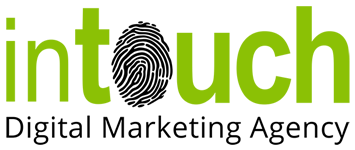 According to a survey by the American Society for Training and Development, seventy-five per cent of executives say mentoring has been critical to their career development.
According to a survey by the American Society for Training and Development, seventy-five per cent of executives say mentoring has been critical to their career development.
We all need mentors. Guiding lights who push us to think or act in different, more aspirational ways. I was no different. I needed a mentor to accelerate my growth, help me think through issues and opportunities I had never encountered. Take me under their wing and prepare me for (hopefully) greatness.
I was 23 when I first met Hersh. He was my boss and the guiding light for all the members of our sales team. At the time I was a young, aspiring salesman needing to make a living to support my new and growing family.
My first born was just crawling when I was headhunted out of my job as a commercial print salesperson for a well-known Toronto based printing company, to represent a leading Montreal based printing company and help them expand in Toronto – what was then the emerging commercial city in Canada.
My main job was to maintain and grow our accounts who were moving cities to escape the political upheaval in Quebec during the mid to late 1970’s. Hersh was the owner of a medium sized communications company called The Apex Group. They were looking for young, eager salespeople like me to do the job. Little did I know at the time the type of enormous impact he would have on me – for the rest of my life.
You see, Hersh believed in nurturing his people. Steering and guiding them to learn by their own mistakes and successes. At first, he was the conductor of our individual symphonies, then, as we emerged from his shadow, he stepped back and became the background music.
Hersh took a personal interest in me. Maybe because I reflected him as a younger man? Maybe just because I was so eager to take flight and he wanted to help me do so. Either way, he saw the inner business person in me. The “consultative” salesman I could become, versus the “transactional” salesman I was.
Hersh called me one day from his office in Montreal, 350 miles away. He told me he was sending me a book overnight that he wanted me to read. The next day a book was placed on my desk. I don’t remember the author’s name but it was published by the American Marketing Association. The book was about becoming a “consultative salesperson.”
What exactly is a “consultative salesperson?” It’s someone who, rather than just “sell” by asking “what’s doing today,” instead, takes a consultative approach. Asking questions to get to know the account. Reading any materials available to do with the industry the account belongs within. Attending industry association events, and, generally, becoming “tuned in” to your client’s needs by understanding their business and their industry.
Armed with this knowledge, the consultative salesperson can then determine how the business they represent can offer the most value to the client. Not the most competitive price, not the best quality or service, rather – and this is the distinguishing difference – provide the most VALUE.
I am sure you can relate to a moment of clarity, so you will understand that reading this book turned on so many switches, gears and lights in my head that I couldn’t sit still, thinking about how I would apply this to myself. Actually become a consultative salesperson versus the transactional one I was at the time, selling commercial printing based on competitive bids, or based on relationships, for the most part.
When could I try out this newfound concept? With what account? Would they listen to me? I didn’t have to wait too long to find out. I was going to call on a Product Manager at Robin Hood Multifoods the following day and I decided he would be the first person to whom I would try this newfound approach.
Robin Hood Flour was the #1 flour in the Canadian market at the time, boasting 100% A/C distribution in all markets. It was the category leader in every way. As a printer I had, to date, provided services to Multifoods like recipe books and point of sale printing, all on a tender basis. Today would be a different approach!
John Doran, (I’ll always remember his name), the Robin Hood Flour Product Manager, and my main contact, met in his office at the appointed hour the following morning. John was an generous man, willing to listen to a young printing salesman, (me), ask: “John, could you spend more time today with me learning about your business, and how we can add more value?”
He must have noticed this new approach, but he went along without hesitation. Here’s the big news…I left his office an hour later, with a commitment from him that would result in the biggest printing order I had sold in my career to date. The commitment from his side was to insert a multiple coupon strip in a promotional quantity of his flour bags containing added value incentives like coupons and refund offers, from baking products allied to his flour brand, i.e., manufacturers of pie fillings, oil, cherries, sugar, butter, etc.
Here’s where my “value” came into the picture: 1) We would gather the participants in the promotion, and, 2) John wouldn’t pay a cent. We would amortize and bill the total cost across all participating companies, and each participant would pick up their specific portion and pay us directly. What John would get was a virtually no cost promotion that would allow him to promote a high value amount of savings/incentives that were in-packed in his flour bag. Consumers would purchase, maybe even re-purchase his product in order to obtain these incentives. We would benefit as the creator, financier and driver of the promotion.
I was pretty impressed with myself after my meeting, even so, I didn’t realize the significance of what I had achieved, and where it would eventually take me. Because Hersh had influenced me to be a “consultative salesperson,” I now had a 6-figure sale that would not only catapult me to be a sales leader in my organization, but the nature of the promotion would introduce me to a litany of potential new clients. And, not just because my price was better, or they liked my quality or my service!
This was a great start! In fact, it was this start that later helped me personally found one of Canada’s leading promotion marketing agencies.
No matter where you are in your career, having a mentor will accelerate your movement forward. First-hand experience has shown me how important it is to have access to a body of experience much deeper than your own. One that can open the doors of your mind to other possibilities, and open the doors to opportunities you would likely not encounter.
Hersh provided that mentorship to me, and over forty years later, I still think of him as the most influential business mentor I have ever had. I still envisage him in certain business situations, what he would have suggested I say. How he would have analyzed our chances for winning an account. The wise metaphor or saying he would espouse in his inimitable way.
As someone who has benefited greatly from the mentorship of key people during my career, I decided to become a mentor myself. About ten years ago I joined the Junior Achievement organization where I volunteered to guide young high school students through the process of entrepreneurship. How exciting it is to inspire young people and help them grow through your business insights and experience. I have never experienced a more rewarding time in my business life.
It’s clearly a more than satisfying experience to receive mentorship during your career. It’s even more rewarding to give it back!
Julian Aston is President of intouch Business, Inc. a marketing agency based in Los Angeles.
